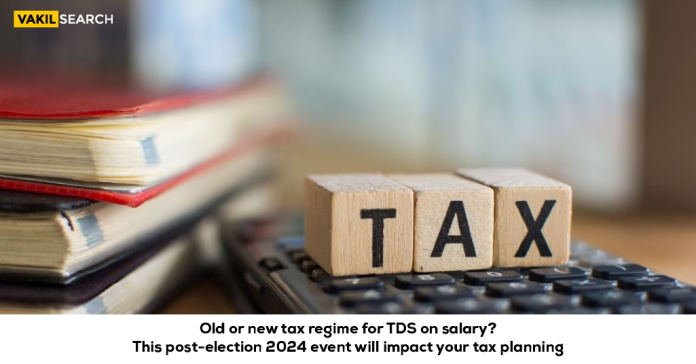As the post-election dust settles, a looming question grips salaried individuals: Should they stick to the old tax regime or opt for the new one when it comes to TDS on salary? This crucial decision, made annually in April, could significantly impact tax planning strategies for the financial year.
Despite the recent interim budget maintaining status quo on tax rates, expectations run high for potential amendments in the upcoming full budget, slated for June or July 2024. These changes could be retroactively applicable from April 1, 2024, adding complexity to tax planning decisions.
Shalini Jain, Tax Partner-People Advisory Services at EY India, emphasises the need for proactive decision-making. With the unique circumstance of two budgets for the fiscal year 2024-25, individuals must assess which regime – old or new – aligns better with their income, exemptions, and deductions. Jain notes the government’s trend of enhancing the attractiveness of the new tax regime with each budget iteration, urging individuals to factor this into their decision-making process.
Navigating the choice between old and new tax regimes starts at the beginning of the financial year, as per a circular from the Central Board of Direct Taxes (CBDT) issued in April 2023. Employees are required to inform their employers of their chosen regime at the outset of the year. Failure to communicate results in deductions based on the new tax regime’s slabs, the default option since April 1, 2023.
However, the circular is silent on mid-year regime changes for TDS on salary. While employers may restrict alterations once a choice is made in April, individuals retain the flexibility to select any regime when filing their income tax return, regardless of earlier communications.
Aarti Raote, Partner at Deloitte India, highlights the importance of informed decisions in light of potential post-April budget changes. Individuals must choose a regime based on existing provisions, with the option to reconsider during tax filing if substantial alterations are introduced. This adaptability ensures individuals can optimise their tax liabilities according to evolving circumstances.
In the face of uncertainty, strategic decision-making and flexibility remain paramount for salaried individuals navigating the ever-changing tax landscape.



